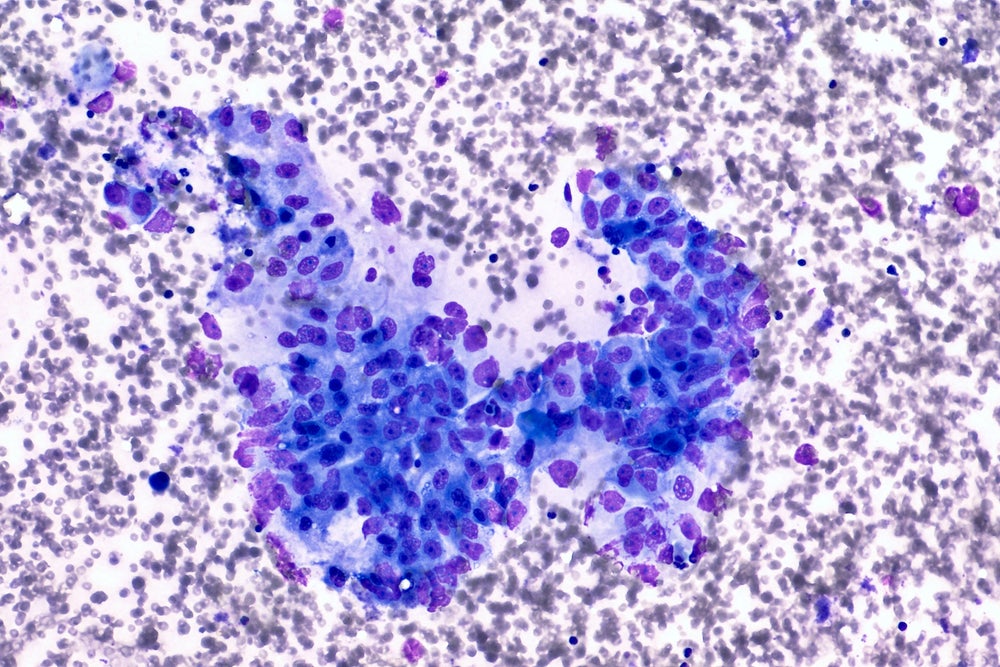
In part two of our conversation with Memorial Sloan Kettering Cancer Center medical oncologist Dr Eileen O’Reilly, she describes the disease burden among pancreatic cancer patients, which makes it tough for enrolment in clinical trials. Dr O’Reilly also underscores the importance of finding efficiencies in diagnosis to boost patients’ chances of survival.
Previously, Dr O’Reilly described the increasing resonance of preclinical trial data in sculpting clinical trial design, and noted that pharmaceutical companies are gun-shy in diving into a disease space with high unmet need.

Discover B2B Marketing That Performs
Combine business intelligence and editorial excellence to reach engaged professionals across 36 leading media platforms.
Reynald Castañeda: Are there specific aspects of pancreatic cancer that are consistently being overlooked when developing new drugs?
Dr Eileen O’Reilly: One of the biggest aspects, and this is true of every single cancer but absolutely true of pancreatic cancer, is that it is a heterogeneous disease. In a small Phase I or II trial, you have highly selected patients with good functional status and good major organ function. The trial result might show you have a drug that can offer a promising response rate, progression-free survival, and even sometimes overall survival. But then in a larger Phase III trial, with sites outside of academic clinical trial sites, the efficacy magnitude is not as profound or sometimes neutral. It’s not that the initial results were wrong, it’s just that they had highly selected patients.
Have a look at BRCA mutations: we know that targeting this mutation can be very effective in breast and ovarian cancers. It can be effective in pancreatic cancer too, but durability of response is not as robust and hazard ratios are not as low as in those other diseases. BRCA is one of the best targets we have in pancreatic cancer, yet things are challenging to get meaningful effect. In short, experience in other diseases may not directly also apply in pancreatic cancer.
RC: What practical, operational challenges are there in running pancreatic cancer trials?
EOR: Pancreatic cancer patients are very sick. They are also already very sick at the time of trial enrolment. And so, to recruit them in trials in a timely way can be a challenge. In fact, at the time of presentation, there are a lot of considerations to look at like pain, loss of appetite, weight loss, sometimes bleeding, and blood sugar issues. I always tell people that pancreatic cancer is complicated: it’s not one or two things but five things happening at the same time, and this is unique relative to other cancers.
In the realm of early detection, it’s becoming an increasingly exciting area in pancreatic cancer. Indeed, trying to diagnose patients earlier will make a lot of potential gain in survival: we know that if people are diagnosed at stage one, they do better than those diagnosed at stage four.

US Tariffs are shifting - will you react or anticipate?
Don’t let policy changes catch you off guard. Stay proactive with real-time data and expert analysis.
By GlobalDataThese new potential diagnostic approaches try to identify groups of people who might be more likely to get pancreatic cancer based on family history, genetic syndromes, new-onset diabetes and other factors. There isn’t any routine screening approach as of now. More recently, the focus is on people aged 50 or older with new-onset diabetes, as this subgroup may be enriched for future screening development. But this will be a huge effort and we will need quite a bit of time before we know whether this strategy will prevail.
The focus is on people aged 50 or older with new-onset diabetes, as this subgroup may be enriched for future screening development.
Another operational challenge is that inclusion criteria in trials can be very tight. Some patients can be two notches above a normal range for a laboratory value and so they may not be eligible. Also, in early drug development, sometimes patients on anticoagulation drugs are excluded, and this can shrink the pool of potential clinical trial participants. As with other diseases, potential trial participants may not have access to centres that are running trials. And, even if the patient can access clinical trial sites, it can be hard to navigate these systems within a very tight timeframe.
Sometimes there is hesitancy among patients to join clinical trials. Patients, of course, should weigh up their choices, but what I advise them is that ‘today’s standard is in yesterday’s clinical trial’. Trial participants hope they would have direct impact on their disease as well as for many other people, and that latter point can resonate.
RC: Has the pandemic made a specific impact on this type of cancer?
EOR: There’s emerging data that people diagnosed with pancreatic cancer in 2020 are not having as positive outcomes as ones diagnosed before the pandemic. We are likely going to see a dip in survival that’ll be pronounced in the next couple of years. There are multiple factors surrounding this issue, but perhaps primarily due to patients delaying seeking help due to the lockdown measures.
While operational challenges were met at that moment in time in 2020, there are ways to improve optimal care for patients in a pandemic setting. I think there are going to be very positive changes in terms of drug development due to the pandemic. For example, telemedicine can break down access barriers to enrolment. Particularly so for oral medications, being able to have people remotely participating in trials.
The interview has been edited for length and clarity.





